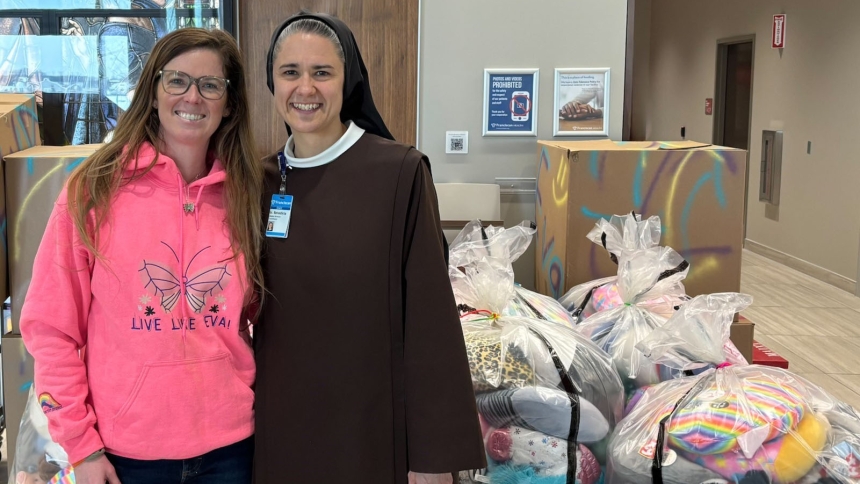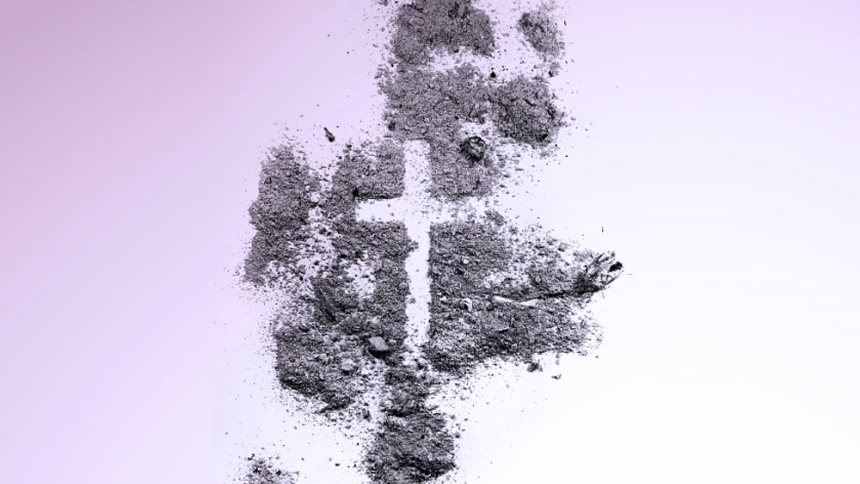
As published in the Northwest Indiana Catholic on March 4, 2018
As you may have heard, the grounds of our Pastoral Center were so flooded last week that the staff could not enter the building for two days. Given the fact that it sits in a flood plain with wetlands, what happened should come as no surprise. With the frozen ground, the rapid snow melt and the intense rain, the water just had no other place to go. I was reminded of the first reading from the First Sunday of Lent which describes the epic account of Noah and the great flood.
In that narrative, the level of violence, sin and hatred had reached such an intensity over all the earth, that, in a sense, it had no other place to go, so God sent the cleansing flood to reboot the human race with the righteous Noah and his family as the new prototype. The flood of evil had reached such a crisis point that something had to give. The Lord begins anew with a covenant sealed by the rainbow.
The recent tragic school shooting in Florida has triggered a different response in our nation than all of the other similar killings. This flood of violence against our youth has reached such a crescendo that people will no longer simply bemoan the tragedy and try to move on as before.
The murders in Parkland have spawned a political movement. How do we not only keep guns out of the hands of potential mass shooters, but how do we build a culture of life where every human being is respected? More and more people are awakening to the need to confront the systemic violence around us. At its core, this epidemic of murder, this flood of evil, is a spiritual problem, but one that has political, legal and cultural implications.
We have all had difficult situations in our lives that we try to suppress, ignore, overlook or wish away, whether it be problems in our marriage, conflicts with a co-worker, the alcoholism or drug abuse of a loved one or even a personal health issue that finally reaches such a crisis point that we can no longer ignore it. Like the flood waters around the Pastoral Center, the dysfunction overflows its banks, reaching a crisis point that demands attentive action. The ground can only absorb so much moisture; our spirit can only accept so much brokenness. But, as the Chinese remind us, crisis is just another word for opportunity.
In a sense, Lent seeks to highlight the spiritual crisis we all face. We are all moving closer to death. We are all sinners in need of redemption. We have all turned away from God in some fashion and followed our own pursuits. We are all looking for love and salvation.
Through this season of penance, in which we embrace a deeper life of prayer, mortify our desires and reach out in mercy and love towards the needy and suffering, we acknowledge that the power of sin and death in our lives needs spiritual attention. We admit our relationships with God and others require mending. We face the crisis of our poverty, emptiness and discontent, not to wallow in negativity but to create a sacred space in which Jesus Christ can take up a deeper residence in our spirit and continue to heal what is broken.
If you have ever experienced the flooding of your house, you know how traumatic it is. You lose precious possessions, your house becomes uninhabitable, mold and mildew are everywhere and you wonder how things will ever go back to normal. Life has become a shipwreck, just like Noah and his family. Think of people who survived Auschwitz, a Soviet gulag, a childhood in an abusive home, a life of drug addiction or sexual abuse, the war in Vietnam. The resilience and power of the human spirit shines in the lives of those who have endured unspeakable trauma and somehow survived.
When the challenges of life and the struggles of our own weakness overflow their banks, wreaking havoc everywhere, we have a fundamental choice. We can passively sit in the wreckage and bemoan our fate or we can courageously begin the cleanup process, which is messy, hard, disorienting and tedious. We may need to sit and cry for a while, grieving what was lost, but we eventually have to summon our inner resolve and begin the task of rebuilding.
Lent is a time for radical self-honesty, prayerful introspection, healing action and renewed hope in the saving power of Jesus’ death and resurrection. We come to realize how much we need the grace of the Lord to break into our lives from the outside and redeem our sin and despair, while also discovering that God is expecting us to do our part - the hard work of conversion - facing within us what needs transformation, and then having the courage to walk a renewed spiritual path in Christ. In the waters of baptism, our old sinful self has been shipwrecked and we are called to emerge as a new creation in the Lord Jesus. Getting flooded out is not necessarily a bad thing if the crisis creates positive change.
Please know of my continued prayers and encouragement as we walk this Lenten pilgrimage together.
+ Donald J. Hying



